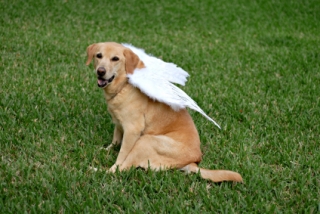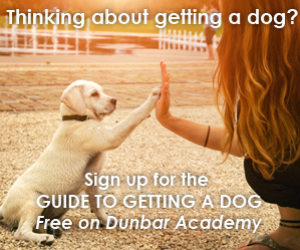Angels and Expectations

I just finished reading Nicole Wilde’s blog post musing about how we humans are often surprised and disappointed when our dog doesn’t like another dog. There are probably a few reasons why we react the way we do. One may be embarrassment. Generally when a dog doesn’t “like” another dog it is communicated by growls or snaps, occasionally by pinning or biting too.
There can be harsh social consequences for owners of dogs that dare to vocalize or act like a dog in public (butt sniffing? …And Dog forbid if they hump!); it makes us owners a bit squirmy and overly-apologetic, not to mention overbearing, interfering, busybodies in our dogs social lives.
People don’t like to see their dog bullied by another dog, even though most of the time it’s not actually bullying, but clear, normal dog/dog communication that we interpret as bullying from our human vantage point with our resident social conduct rules.
And it’s not just dog/dog interactions either. There is another reason why people tend to get their panties in a bunch when dogs don’t “like” another dog or otherwise react in a doggy way:
Dogs communicating anything but utter happiness is forbidden by our human standards. We expect them to be joyous, benevolent creatures at all times! AT ALL TIMES! If they don’t always act like happy fools they are labeled a bad dog, or a “red zone” dog, or dominant, etc… At which point we give ourselves license to punish the so-called bad dog for not living up to our insane, unattainable, expectations of Zen-like tolerance.
The truth is, that some dog behaviors that we don’t approve of, or can’t bear to see, are completely within the realm of normal, often necessary, and not dangerous at all, but instead quite the contrary, help to keep the peace or provide an outlet.
Our insistence that all dogs get along, or never growl, or guard, etc. is as unrealistic as it is dangerous. Dogs that are forced to get along or punished for expressing displeasure or discomfort often become pressure cookers of unexpressed emotions that are unresolved and will potentially come bursting out at some point.
The best way we can avoid this problem and do dogs at large a favor is to take the time to learn about real dog behavior and then learn to tolerate it (within reason) or to learn about how dogs learn and counter-condition new emotions and responses in our dogs. While we’re at it, it doesn’t hurt to take a deeper look at how we humans interact with dogs from our primate perspective.
So do your best to let dogs be dogs and appreciate them for all of their unique doggy intricacies. After all isn’t that why we choose to live with them in the first place?
Take a peek at Marie Finnegan’s post Why A Growl Is Good Redux or Jeff Silverman’s Angels or Devils for more on this topic.




